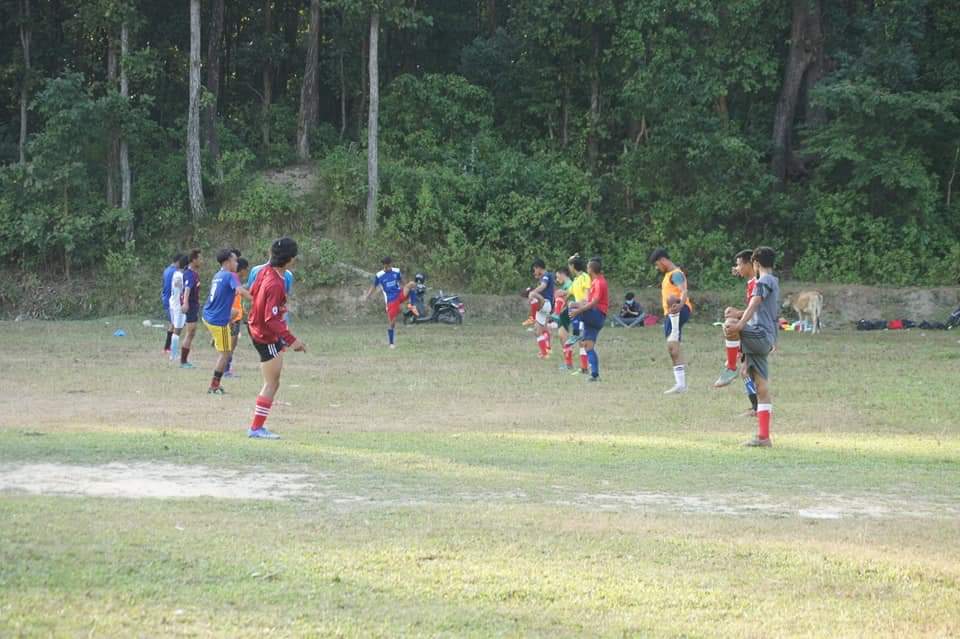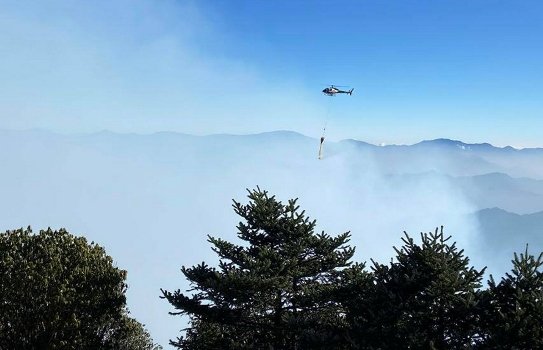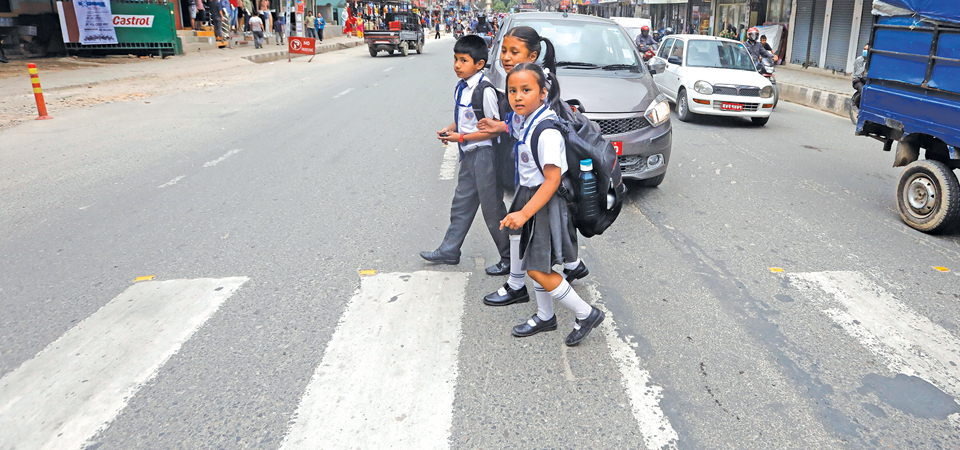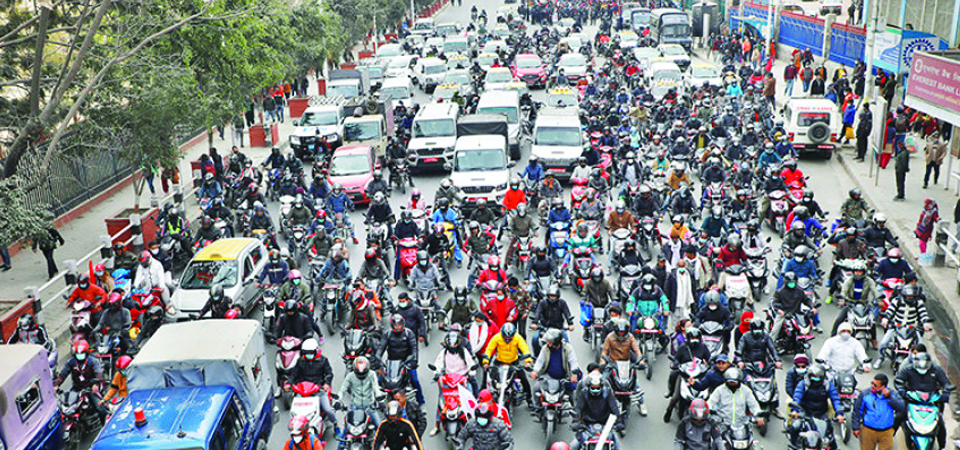Poor farmers seek essential services
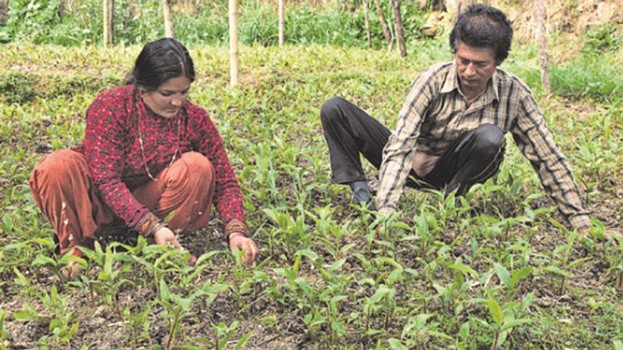
By Nayak Paudel
Kathmandu, Jan. 28: Agriculture has been the backbone of Nepal for long. More than half of the population of Nepal has been involved in agriculture to sustain their livelihoods but the farmers argue that they still require several services from the government in order to become self-reliant.
Sunlal Lama is a man in his mid-30s who lives in Kakani Rural Municipality of Nuwakot. Lama’s major occupation is agriculture and it is through farming that he supports his family of six including two children, two elderly and wife.
According to Lama, they cultivate vegetables, rice and lentils in their own lands and the produce is enough to sustain their life.
“There are only few things such as salt and sugar which we are unable to produce in our field. Other than that, we grow all necessary things possible in our area which support us throughout the year,” said Lama.
Like many farmers in Kakani, Lama is also involved in producing strawberries for commercial purpose. However, the farmers in the area argued that the economic profit from the only cash crop they grow is insufficient to avail several services other than the two meals a day.
“The problems we face by being self-dependent through agriculture is lack of money to ensure quality education of our children and afford medical treatment of our elders,” said Lama.
Affording several necessary services such as education and health has been a struggle not only for the farmers in Kakani but throughout the country.
“A proper government school which can provide quality education for free and a health centre nearby to provide quality treatment at reasonable cost is what we farmers are in immediate need of,” said Lama, who added, “A healthy and educated farmer becomes self-reliant through different measures and such farmers can help the country develop in as many ways as possible.”
The problems and struggles of Lama are similar to that of an elderly couple, both in their 70s, in Nala area of Banepa. The couple lives alone in a mud house with just enough land around to cultivate different crops and sustain their daily needs.
“We cultivate necessary crops and vegetables in respective season which provides us two meals a day. However, we struggle each day to buy every other thing we cannot cultivate because we have no other source of income,” said Ram Krishna Dahal, the husband.
According to Dahal, they sell spinach and other vegetables to their neighbours at cheap price through which they earn some money to buy daily goods such as oil, sugar and salt.
“While we struggle to buy daily goods, we try to hide the pains in our joints and several parts of the body throughout the day and night because we cannot afford treatment at the health centres. We wonder how long our bodies will endure,” said Dahal.
The couple stressed that the government must play an important role in providing either free or at least cheap health services.
Lama and the elderly couple have a natural source of water which helps them cultivate crops effectively but there are many farmers throughout the country who don’t have proper irrigation facilities in their area. Farmers in Nepal have limited access to improved seeds, new technologies and market opportunities which have led to decline in agricultural production and dwindling rural economies.
The recent scenario of sugarcane farmers arriving in Kathmandu from Terai and protesting for days to secure government’s assistance in receiving their hard-earned money from the sugar mills shows the wretched condition of agriculture in Nepal.
“If a farmer doesn’t have proper market opportunities, the cultivated crops have no value and the farmer receives no earning. Similarly, if the government doesn’t provide services such as cheap and quality education and health for the family members of the farmers, we will never be able to uplift ourselves and strengthen our resolve towards agriculture,” Lama told The Rising Nepal.
Recent News

Do not make expressions casting dout on election: EC
14 Apr, 2022
CM Bhatta says may New Year 2079 BS inspire positive thinking
14 Apr, 2022
Three new cases, 44 recoveries in 24 hours
14 Apr, 2022
689 climbers of 84 teams so far acquire permits for climbing various peaks this spring season
14 Apr, 2022
How the rising cost of living crisis is impacting Nepal
14 Apr, 2022
US military confirms an interstellar meteor collided with Earth
14 Apr, 2022
Valneva Covid vaccine approved for use in UK
14 Apr, 2022
Chair Prachanda highlights need of unity among Maoist, Communist forces
14 Apr, 2022
Ranbir Kapoor and Alia Bhatt: Bollywood toasts star couple on wedding
14 Apr, 2022
President Bhandari confers decorations (Photo Feature)
14 Apr, 2022



